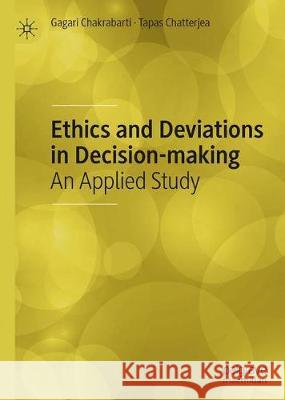Ethics and Deviations in Decision-Making: An Applied Study » książka
topmenu
Ethics and Deviations in Decision-Making: An Applied Study
ISBN-13: 9789811506864 / Angielski / Twarda / 2019 / 294 str.
Kategorie:
Kategorie BISAC:
Wydawca:
Palgrave MacMillan
Język:
Angielski
ISBN-13:
9789811506864
Rok wydania:
2019
Wydanie:
2020
Ilość stron:
294
Waga:
0.52 kg
Wymiary:
21.01 x 14.81 x 1.91
Oprawa:
Twarda
Wolumenów:
01
Dodatkowe informacje:
Wydanie ilustrowane











